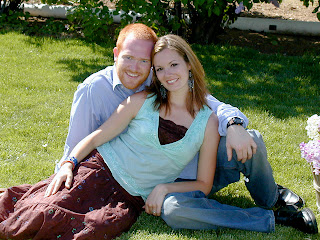As we said in our last post, Lebanon is a microcosm of the greater Middle East, so we thought we might take an opportunity to explain a little about why there are Palestinian refugee camps in Lebanon. Back in 1948, following WWII, the State of Israel was formed, carved out from the land of Palestine by the British. Jewish settlers had lived and co-existed with native Palestinians until this time, but there had been greater tension building as the Zionist movement tried to claim a “homeland for the Jews.” The slogan prior to this time was “A land without a people, for a people without a land.” The problem with this was that it completely ignored the fact that there had been Palestinians (or those who are now called Palestinians) living in the land. This was not “a land without a people.” These people trace their heritage back at least to the time of the Crusades (the movie Kingdom of Heaven documents this) and many prior, back to the destruction of the Jewish Temple in 70 AD.
So, with the formation of the State of Israel, hundreds of thousands of Palestinians were forced from their homes, some tried to remain in Palestine, but many were forced out of their country, becoming refugees fleeing from their homes. Refugee camps were established in Jordan, Syria, Egypt, and Lebanon, but currently Lebanon holds the majority of Palestinian refugees in 12 refugee camps (394,532, or an estimated 10 per cent of the population of Lebanon).1 That is a lot of people for a country already densely populated, 4 million in a country the size of Connecticut.
Many people agree that peace in the Middle East will only come once there is a solution for the “Palestinian problem.” (This was affirmed in by the Iraq Study Group chaired by James Baker and Lee Hamilton last year, as an integral part of the solution in Iraq).2 This is a difficult proposal, but currently peace will only come once Israel (backed by America) agrees to peacefully co-exist with their Arab neighbors, which includes a legitimate and equal (self-governed) Palestinian state. Right now Israel is the strongest power in this region (supplied by 1/3 of the total American foreign aid budget, and more military aid that supplied to all the countries of sub-Saharan Africa, Latin America, and the Caribbean put together).3
This past quarter, as a part of the Peace and Justice Concerns Committee at Fuller, we created a mural that is taken from the “Separation Barrier” outside of Bethlehem.

 Our protest against the "Separation Barriar" and all the other walls in the world (the US-Mexico wall, the wall in Iraq built by the US military, the DMZ in Korea) using the same line from Ronald Regan to President Gorbachev about the Berlin Wall in 1988.
Our protest against the "Separation Barriar" and all the other walls in the world (the US-Mexico wall, the wall in Iraq built by the US military, the DMZ in Korea) using the same line from Ronald Regan to President Gorbachev about the Berlin Wall in 1988.Many people are not aware, but Israel is currently building a wall to separate itself from the rest of the Middle East, but in the process they are taking even more Palestinian land. The justification of this wall is for self-defense from terrorist acts and suicide bombers, but it was deemed illegal by the International Justice Court in 2002. We believe, and hope for, the peaceful co-existence of Israelis and their Arab neighbors (Palestinians, Syrians, Jordanians, Egyptian, and Lebanese), but believe this will only come once the Zionist movement (most largely supported by America, including some Evangelical groups) is replaced by a movement that has respect for all humanity and considers each person equally created in the image of God.
If you are still reading, we appreciate bearing with us. If you are interested in more resources on this subject read Jimmy Carter’s book Palestine: Peace Not Apartheid, or visit www.stopthewall.org We fully know this is a difficult and controversial subject, but also feel a strong burden to share about this and bring it into public debate within the United States. Blessings to everyone as we seek to be peacemakers in this broken world.
1) UNRWA at http://www.un.org/unrwa/refugees/lebanon.html
2) Able to be viewed at www.bakerinstitute.org/Pubs/iraqstudygroup_findings.pdf for those interested.
3) Washington Report on the Middle East December 2002

1 comment:
Thanks for sharing. I think you've given a well-written testimony of this important "living history." I pray that your experience out there would arm you with even greater knowledge to combat the ignorance of the American public, particularly American Christianity.
Blessings on you both!
Post a Comment